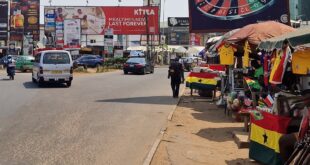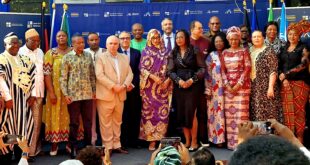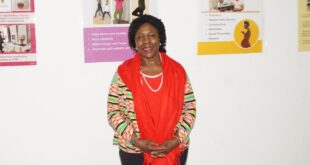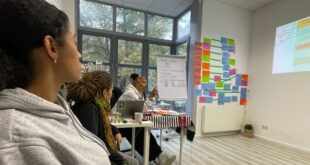Dr Pierrette Herzberger-Fofana, a member of the European Parliament representing Germany on the platform of the Greens, writes on the celebration of the 70th anniversary of the European Parliament which took place on 22 November in the French city of Strasbourg
—–
Genesis of the European Parliament
The European Parliament celebrated its 70th anniversary on 22 November in Strasbourg in the presence of the President of the European Commission, Mrs von der Leyen, Commissioners and Members of Parliament from the 27 Member States of the European Union.
Seven years after the Second World War, Europe was considering a continent-wide reconciliation and in 1952, the Common Assembly of the European Coal and Steel Community (ECSC), the forerunner of the European Parliament, was born. Six ECSC Member States were represented by 78 MEPs.
Seventy years ago, on 10 September 1952, the first session was held in Strasbourg. The European Parliament, which took this official name in 1962, today counts 705 MEPs who have been elected by universal suffrage since 1979, representing 500 million inhabitants.
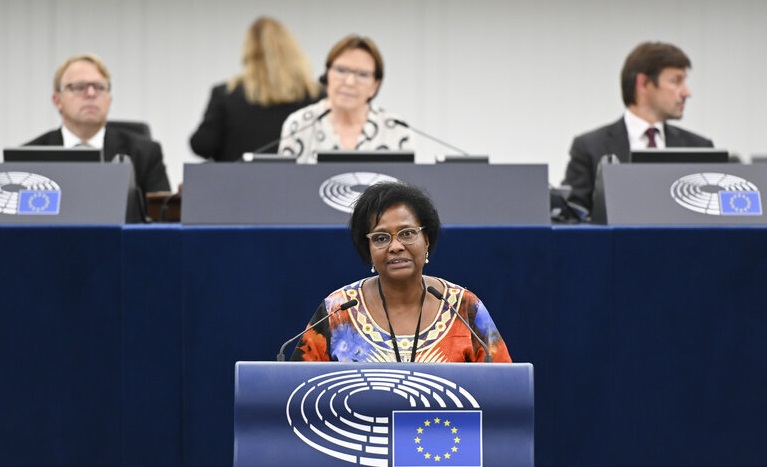
Since 1999, the MEPs have met in Strasbourg for plenary sessions of the European Parliament, but they can also sit in Brussels. The Parliament has witnessed the construction of Europe and has become essential within the European institutions and in the functioning of this edifice that is the European Union.
The official ceremony began with a retrospective video of the Parliament, showcasing highlights that marked its history by presenting charismatic figures, such as Simone Veil, the first female President of the Parliament, Nelson Mandela, winner of the Sakharov Prize, the highest distinction of the Parliament, and so many other personalities such as Helmut Kohl, German Chancellor who have all entered the collective memory of the whole. The President also paid tribute to this august multilingual assembly as a “beacon for the defence of democracy.”
The President’s speech was followed by interventions by the Prime Ministers of the three countries hosting the seat of Parliament: France, Belgium and Luxembourg.
Speech of the President of the European Parliament
In her opening speech in the Chamber, the President of the European Parliament, Ms Roberta Metsola said: “The European Parliament is the only one transnational, directly elected, multilingual and multi-stakeholder parliament in the world. Its 705 directly elected members are the expression of European public opinion.”
The President’s speech was followed by interventions by the Prime Ministers of the three countries hosting the seat of Parliament: France, Belgium and Luxembourg.
Interventions of the Prime Ministers
Belgian Prime Minister Alexander de Croo stressed that “The political project of today’s Europe is mainly driven by visionary citizens.” He welcomed the “The fundamental work that this Parliament has done to protect democracy and the rule of law in Europe” and added: “We cannot leave this fight for fundamental rights to the courts alone. We politicians also have to do the heavy lifting.”
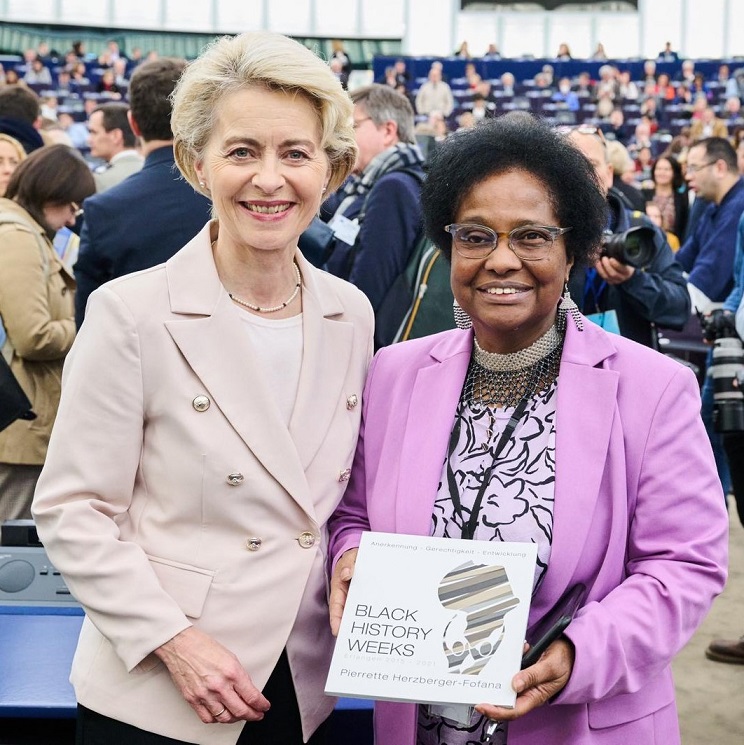
Luxembourg Prime Minister Xavier Bete, in his speech, tinged with emotion, proclaimed his attachment to the first president of the parliament, Simone Veil. He emphasized the principle of diversity which is at the heart of the discussions and said, “seven years after the war, we decided to create something.” He went on to allude to the dark period of history: “At that time, people were not allowed to live because they were different; Today we live in a territory where citizens are free.”
He concluded: “During the Second World War, I would not have had the right to live, I am a liberal, of Jewish origin and married to a man: and here I am today head of government. This is the European project: you can be different, and that is where our richness lies: in this diversity.”
French Prime Minister Elisabeth Borne took the floor stressing the role of France in building a common future for the European Union. She insisted on the symbol that Strasbourg represents, seat of the European Parliament. “A city that bears within it the mark of history […] By embodying the reconciliation of the peoples of Europe, Strasbourg shows the strength of unity and the power of peace.”
Interventions by political groups
Speaking after the Prime Ministers, most of the presidents of the Parliament’s seven political groups stressed that Europe only had a future if it was democratic, and that it was necessary to endow the European Parliament with full legislative rights for the benefit of citizens, with European citizenship strengthening national citizenship.
For Philippe Lambert, Co-President of the Group of the Greens/European Free Alliance (The Greens/ (EFA), the challenge for the future is threefold and can be summed up in these three terms: ambition, compromise and the preservation of democracy and the rule of law.
The presidents of political groups highlighted the challenges facing Europe at the moment: The war in Ukraine, global warming and the Covid pandemic that have profoundly disrupted society.
In response to harsh criticism and dissenting voices from other MEPs, President Mesola said, “your intervention has just proved that pluralism and diversity do exist in parliament.”
Conclusion
After 70 years of existence, the European Parliament can be considered as the largest forum for the exchange of views in a democratic spirit.
Dr Pierrette Herzberger-Fofana, a Member of the European Parliament, MEP, is Vice-President of the Development Committee and Vice-President of the EU-ACP Joint Parliamentary Assembly (European Union – Africa Caribbean-Pacific).
………………
Notes:
– “United in diversity” is the slogan of the European Parliament.
– The Sakharov Prize for Freedom of Thoughts is the highest distinction awarded by the European Parliament to act in favour of human rights. It was awarded in 1998 to Nelson Mandela.
 THE AFRICAN COURIER. Reporting Africa and its Diaspora! The African Courier is an international magazine published in Germany to report on Africa and the Diaspora African experience. The first issue of the bimonthly magazine appeared on the newsstands on 15 February 1998. The African Courier is a communication forum for European-African political, economic and cultural exchanges, and a voice for Africa in Europe.
THE AFRICAN COURIER. Reporting Africa and its Diaspora! The African Courier is an international magazine published in Germany to report on Africa and the Diaspora African experience. The first issue of the bimonthly magazine appeared on the newsstands on 15 February 1998. The African Courier is a communication forum for European-African political, economic and cultural exchanges, and a voice for Africa in Europe.






